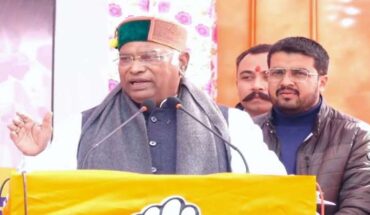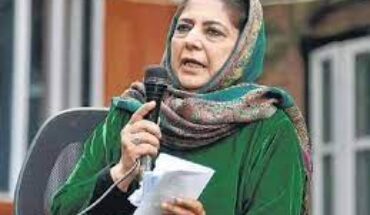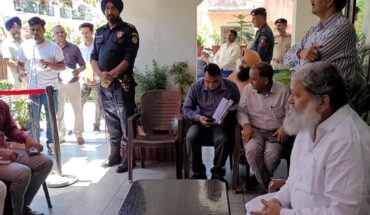New Delhi: Asserting a collective will as a nation to teach Pakistan a lesson, the Congress Working Committee today urged the Government of India to act with firmness, strategic clarity, and international coordination to isolate and penalise Pakistan for its continued export of terror to our country.
The CWC, which met here today under the chairmanship of the Congress President Mallikarjun Kharge, passed a resolution expressing solidarity and support with the 26 families who lost their loved ones in the barbaric terrorist attack in Pahalgam.
In his opening remarks, Kharge said that the Congress has expressed unambiguous support to the government to deal with the situation. However, he pointed out, even after ten days of the gruesome incident, the government has not taken any action.
“The pain of these families is the pain of the entire nation,” it noted, while adding that the CWC stands with them not only in words but in enduring solidarity.
At the same time, the CWC asserted that the entire country “awaits accountability, answers, and justice.” In the face of such an unforgivable provocation, the Indian National Congress believes this is not a time for politics, but a moment that calls for unity, strength, and national resolve, it said, adding, “We must rise above partisan divides and send out an unambiguous message that India stands together, and will not be broken.”
The CWC resolution asserted, “This is a time for demonstrating our collective will as a nation to teach Pakistan a lesson and curb terrorism decisively. The masterminds and perpetrators of this cowardly attack must face the full consequences of their actions.”
The CWC resolution also called for sustained moral and institutional support to the victims’ families. “Compensation alone is not enough. Long-term rehabilitation, mental health support, and honouring the memory of those lost through national recognition and civic remembrance are equally essential,” it added.
The CWC also reaffirmed its earlier demand for time-bound accountability into the serious lapses in security and intelligence in one of the most heavily guarded regions of the country. “The people of India deserve transparency and accountability,” the resolution observed, while appealing to all citizens to remain united, calm, and resolute. “Let our response to this act of terror reflect the strength of our democracy, the depth of our unity, and the resilience of our Republic,” it added.
Later, briefing reporters, party general secretaries Jairam Ramesh, Bhupesh Baghel & Sachin Pilot; CWC members Charanjit Singh Channi and Saptagiri Ulaka reiterated the party’s unambiguous support to the government for teaching Pakistan a lesson.
Jairam Ramesh reminded the government of the February 22, 1994 unanimous resolution of the Parliament which seeks to liberate the part of Kashmir which is under the illegal occupation of Pakistan.
He reiterated the party’s demand for an “immediate session of the Parliament” to debate and discuss the terror attack and the action that needs to be taken. He asked the Prime Minister and his Cabinet colleagues to stop targeting the Congress and instead take some decisive action.
Bhupesh Baghel questioned the lack of adequate security in a region previously considered sensitive, despite repeated warnings and a history of similar attacks.
Former union minister Sachin Pilot reaffirmed the Congress Party’s complete and unconditional support to the Government of India. He recalled the unity displayed by the Congress during the 2001 Parliament attack, underlining the party’s consistent commitment to national interest. “This is not an attack on tourists. This is an attack on India. The Prime Minister must respond—not with speeches, but with action,” he said.
Channi reaffirmed Congress support to the government in whichever decision it takes to finish terrorism and strengthen the unity and integrity of the country. “Congress stands with the government like a rock,” he remarked.
Saptagiri Ulaka, MP, who recently visited the region as part of a Parliamentary committee, expressed shock that just days before the attack, officials claimed everything was “under control.” He demanded answers from the Home Ministry regarding the failure of intelligence and security arrangements.





